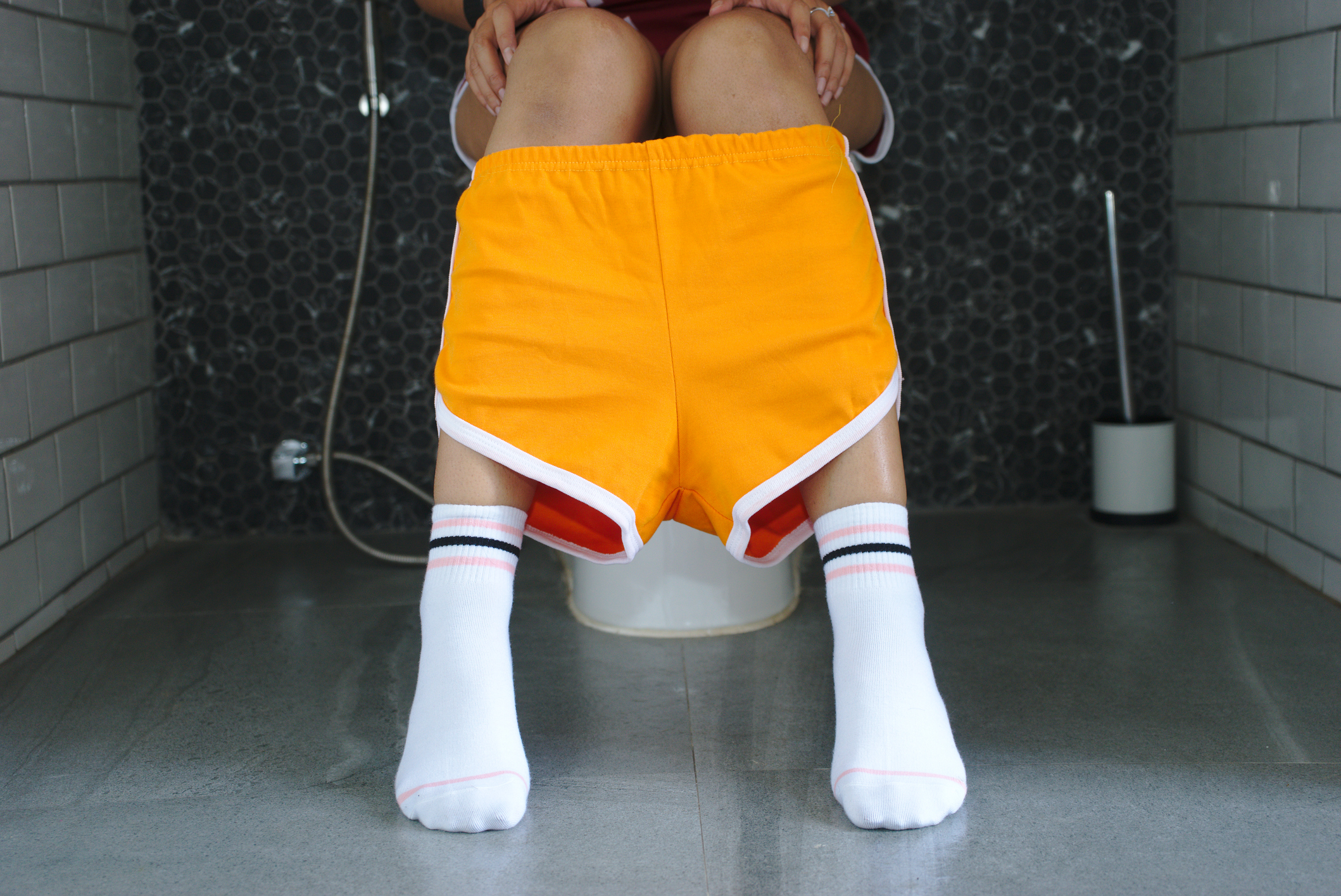Thrush symptoms can be subtle: 6 ways to know if you've got the infection
3 out of 4 women will get vaginal thrush in their lifetime - here's how to treat it.

3 out of 4 women will get vaginal thrush in their lifetime - here's how to treat it.
Ever experienced a hot, itchy sensation down there and pain when you have sex or go to the toilet? Yep, those are both common thrush symptoms, and while it's totally normal (and fairly common, FYI) to suffer from the female health condition, it's also great to have a clear idea of how to treat it.
FYI, it's not just Amy Schumer who's had thrush - remember her joke about her underwear looking like she'd blown her nose in it? It’s the second most common type of vaginal infections after bacterial vaginosis, and also presents itself in the form of vaginal discharge.
While thrush is more often than not a perfectly normal result of self-cleansing, it can get irritating (literally) - if you keep getting it.
Just like clueing yourself up on the different types of headaches, it's important to know about the many vaginal infection types, from BV, to UTI's like cystitis, to STD's like HPV. We wrote you guides to period pants, PMS symptoms and how to use a tampon. Next up: keep reading for your 101 on vaginal care, with a run down of the most common thrush symptoms, and your need-to-knows about treating it, too.
What is thrush?
As doctor Hana Abu-Hassan working of Chelsea Pharmacy Medical Clinic explains it, vaginal thrush occurs when a fungal yeast called candida, which commonly lives on the skin and around the vaginal area, multiplies.
"When conditions are good for candida - think your vaginal pH or hormone levels fluctuating - the bacteria can invade the vagina and cause unwanted thrush symptoms," explains Abu-Hassan.
You're most likely to get it when you're pregnant, if you're diabetic, if you take antibiotic medication, or if your immune system isn't working normally, shares the doctor.
Marie Claire Newsletter
Celebrity news, beauty, fashion advice, and fascinating features, delivered straight to your inbox!

Thrush symptoms: 6 most common
According to Abu-Hassan, the most common thrush symptoms are the following:
- Itching of the skin folds outside the vagina (aka the vulva)
- Itching inside the vagina
- Soreness or burning of the vulva
- Stinging or pain on passing urine
- Painful sex
- Vaginal discharge: quite thick although sometimes watery and creamy white.
"If there is soreness without itching, this is more likely to have another cause," she explains.
Thrush treatment: 8 to try
Wondering what the best treatments for thrush are? In short, you'll need to take a trip to a pharmacy and have a chat with a professional there.
As doctor Deborah Lee of Dr Fox Online Pharmacy explains, the most common treatments are anti-fungal drugs like nystatin, clotrimazole, fluconazole, econazole and miconazole. "These are usually given as one, three or seven day treatment programmes," explains Lee. "Fluconazole, for example, is often given by mouth, as a one-off dose of 150mg."
Next up: you'll likely have used - or at least seen - Canesten at some point in your life. Commonly stocked in Boots, Superdrug and all good pharmacies, it's the most common pessary treatment for vaginal thrush - think a dissolving tablet you insert into your vagina, or you can opt for their intravaginal cream - that's cream that goes both inside and outside of the vagina.
Not so keen on this and prefer to take your treatment orally? "You can also opt for a single dose of fluconazole 150mg," explains Lee. "Do ask your pharmacist if you're not sure - they're there to help."
Do note here: there's no difference in how effective the different antifungal treatments are, and pregnant women shouldn't use fluconazole.

Can you get repeat cases of thrush?
Short answer: yes, but it's not as common as people perhaps think. While around 75% of women will experience thrush at some point in their lives, stats indicate only 5% get it regularly and on repeat.
Bottom line, if you do keep experiencing recurring thrush, visit your GP. They'll be able to advise on the best course of action.
How to stop recurrent vaginal thrush
1. Wear natural fibres
Think cotton or silk, rather than synthetic fabrics, advises Lee.
2. Avoid tight clothes
We're looking at you, gym leggings. Occlusive garments can exacerbate the itching and burning sensation, or so says the doctor.
3. Opt for skirts
Sure, not always an option, but if you can try and wear more skirts and stockings instead of trousers, you'll likely stop your groin area from getting too hot, she says.
4. Avoid scented products and wash carefully
Keen to get your vaginal care nailed? The single most important thing you can do, according to both doctors, is use simple, unscented products and similar pads and tampons when it's your TOTM.
Plus, when it comes to washing down there, only wash this part of your body once a day, as over-washing can reduce the healthy bacteria in the vagina and change your vaginal pH, explains Lee.
5. Eat a balanced diet
Sounds obvious but is actually really important for making sure your vaginal pH stays balanced. "Eat a healthy diet, with five portions a day of fruit and vegetables," recommends Lee.
FYI here: there is no evidence that cutting yeast out of the diet, or following a sugar-free diet, will help prevent attacks of recurrent candidiasis, shares the doctor.
If your thrush symptoms haven't resolve within seven to fourteen days, do visit your doctor.

Ally Head is Marie Claire UK's Senior Health and Sustainability Editor, nine-time marathoner, and Boston Qualifying runner. Day-to-day, she heads up all strategy for her pillars, working across commissioning, features, and e-commerce, reporting on the latest health updates, writing the must-read wellness content, and rounding up the genuinely sustainable and squat-proof gym leggings worth *adding to basket*. She also spearheads the brand's annual Women in Sport covers, interviewing and shooting the likes of Mary Earps, Millie Bright, Daryll Neita, and Lavaia Nielsen. She's won a BSME for her sustainability work, regularly hosts panels and presents for events like the Sustainability Awards, and is a stickler for a strong stat, too, seeing over nine million total impressions on the January 2023 Wellness Issue she oversaw. Follow Ally on Instagram for more or get in touch.
-
 All the coolest brides are wearing drop-waist wedding dresses this year
All the coolest brides are wearing drop-waist wedding dresses this yearWedding Special Minimalist, nostalgic, and universally flattering
By Clementina Jackson
-
 Anya Hindmarch has just launched a fantastical diving shop in central London
Anya Hindmarch has just launched a fantastical diving shop in central LondonFor those who would rather be beside the seaside...
By Sofia Piza
-
 Blake Lively’s legal team has criticised Justin Baldoni’s “scorched earth" approach
Blake Lively’s legal team has criticised Justin Baldoni’s “scorched earth" approachBy Jenny Proudfoot